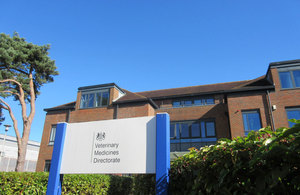16 faith groups to share £1.3 million ‘New Deal’ fund to help support communities
- ‘New Deal’ pilot fund to provide £1.3 million to faith-based organisations to deliver innovative projects
- Projects work with police, schools, councils and other voluntary groups to tackle issues affecting the most vulnerable
- Pilot will help establish principles for the government’s wider relationship with faith groups
Sixteen faith-based groups working with the most vulnerable people in local communities will receive a boost to support their work through the government’s £1.3 million Faith New Deal pilot scheme.
The groups, which include Christian, Jewish and interfaith organisations, will work in partnership with councils, schools, police, health providers and voluntary groups to develop innovative interventions to tackle social issues affecting those in most need of support.
Projects will include providing debt and employability advice, tackling food poverty, providing support for mental health issues and combatting loneliness and isolation.
The fund will also help faith groups to build on the collaboration with national and local government that happened during the pandemic.
Examples of this include supporting government’s effort to reach communities and administer the COVID-19 vaccine:
- A Voluntary, Community and Social Enterprise partner, Strengthening Faith Institutions, helped to transform the Greengate Mosque in Oldham into a temporary vaccination centre, where over 2,000 people from local communities received life-saving vaccines.
- Guru Nanak Sikh Gurdwara in Wolverhampton worked hand in hand with public health services to help the government better understand coronavirus detection by running testing pilots in partnership with faith groups across the city.
The Faith New Deal Fund will also inform the development of a Faith Compact that will set out key principles to aid engagement between faith groups and government.
Faith Minister Paul Scully said:
We saw the instrumental role that faith organisations played in supporting vulnerable people during the pandemic. Working closely with local partners, councils and government, they supported communities where they need it most.
This pilot scheme will build on that vital work, so that faith organisations and their partners can continue to support communities as they recover.
Minister Scully recently visited the Church Revitalisation Trust based in West London, one of the faith groups awarded funding. Through their nationwide Love Your Neighbour project, they work in partnership with volunteers and public services to provide debt advice, employment training and other community care.
Revd Tom Jackson MBE, Chief Executive, Love Your Neighbour said:
Love Your Neighbour is delighted to be a partner in the very significant and timely launch of the Faith New Deal.
We look forward to working with churches and local partners including statutory authorities across the United Kingdom to increase the impact of the crisis food support, debt advice, employment training and other wrap-around care this ground-breaking initiative will enable”.
Other projects the Faith New Deal fund will support include:
- Jewish Action for Mental Health (JAMH) based in Manchester will expand their work with other faith groups, councils and health services to deliver food to those in need and work in partnership with public services to tailor mental health provision and provide support to those in need.
- All Souls Serve the City, based in London, have partnered with local churches, Westminster Council, charities and the police force to improve mental wellbeing and combat loneliness for vulnerable women.
List of successful applicants receiving Faith New Deal Pilot Fund awards.
| Organisation | Name of Project | Amount of funding (£) |
|---|---|---|
| Jewish Action for Mental Health (JAMH) | Evidencing Faith Food and Mental Health Solutions | £93,900 |
| The Cinnamon Network | Church Mental Wellbeing and Loneliness Project | £51,693 |
| Trinity Safe Space | Partners | £113,862 |
| Safe Families UK | Safe Families | £58,400 |
| The Torbay Deanery | Torbay United for Safety and Food Security | £120,000 |
| Church Revitalisation Trust | Love Your Neighbour | £200,000 |
| Transforming Plymouth Together | Real Conversations | £99,950 |
| Mission in the Economy | St Helens Mobile Community Food Pantry | £124,842 |
| Interfaith Wolverhampton | Faith & Community Connected | £94,020 |
| Edmonton Methodist Church | Enfield Pathways Integrated Consortium | £78,600 |
| The Faith and Belief Forum | Multi-Faith Action Hub | £41,049 |
| Hereford Diocesan Board of Finance | Hereford Diocese | £38,630 |
| City Life Church Southampton | Love Southampton | £109,000 |
| Zion Projects | As One Hampshire | £43,220 |
| All Souls Serve the City | Tamar | £7,747 |
| Caring for God’s Acre | Volunteer Nature Recovery | £7,586 |

